Randy Tejada is 25 years old, and his path to the seminary was an unlikely one. But the challenges he has faced in his life have only strengthened his resolve to serve the least of God’s people.
Born in the Dominican Republic, Tejada has lived in Puerto Rico since the age of 7 and has become a U.S. citizen.
He grew up in a poor neighborhood of Caguas, Puerto Rico, where he and his two younger brothers were raised by their single mother. Many of Tejada’s childhood friends and classmates fell into lives of drugs and street violence. Some of them even died.
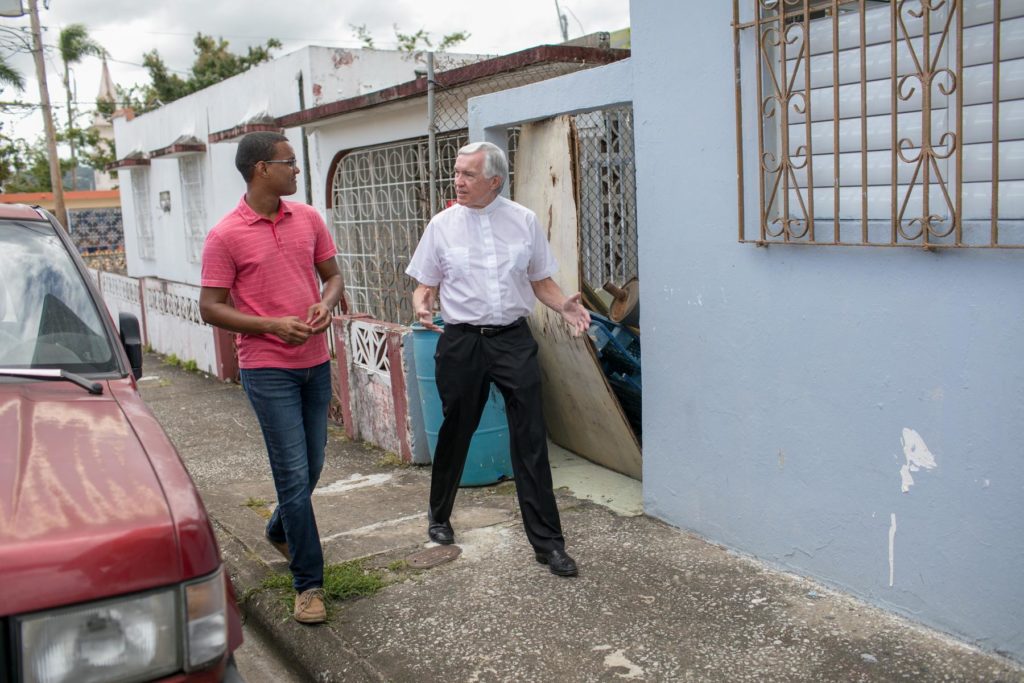
Tejada steered clear of these dangers and remained close to the Church and his Catholic faith—which he attributes in large part to his maternal grandparents.
His home parish, Our Lady of Perpetual Help, is a mission chapel located in a low-income neighborhood of Caguas. In spite of its poverty, Tejada has always understood that something very powerful happens in that humble chapel, which is why he became increasingly more involved in parish activities.
Catholic Extension Society helped build the chapel and parish hall, and is working to rebuild the church and other church structures damaged by Hurricane Maria in 2017.
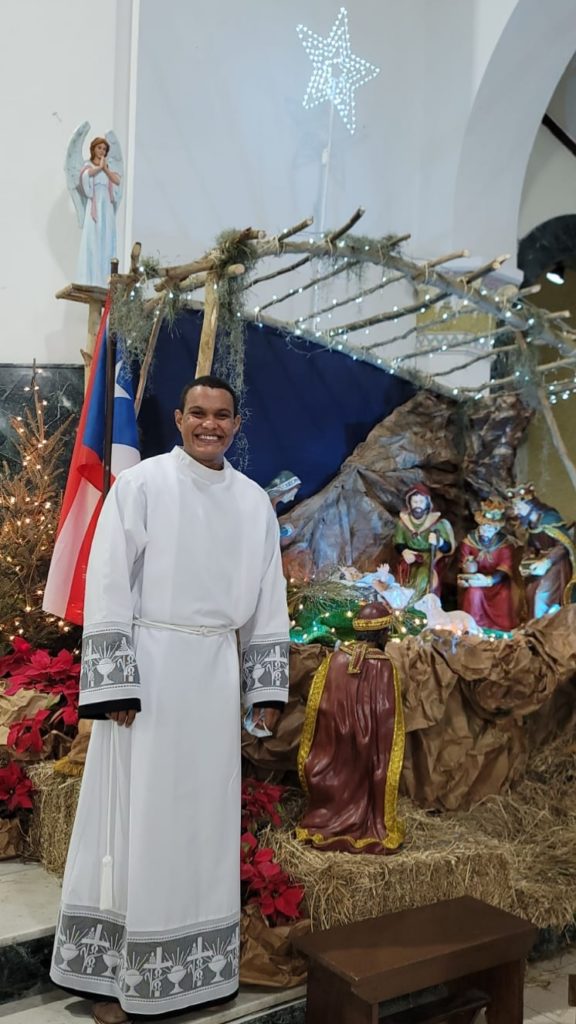
While studying at the University of Puerto Rico, Río Piedras, where he would eventually earn his bachelor’s and master’s degrees in social work, Tejada was first confronted with the question of what God was calling him to be. A visiting priest asked, “Have you ever asked what God wants for you?”
Never in his wildest dreams did Tejada ever think that God’s plan might involve abandoning his dream of pursuing a doctorate to enter the seminary for the Diocese of Caguas. What’s more, he had people depending on him financially with a promising career ahead of him.
Over time, Tejada started warming up to the idea of pursuing the priesthood.
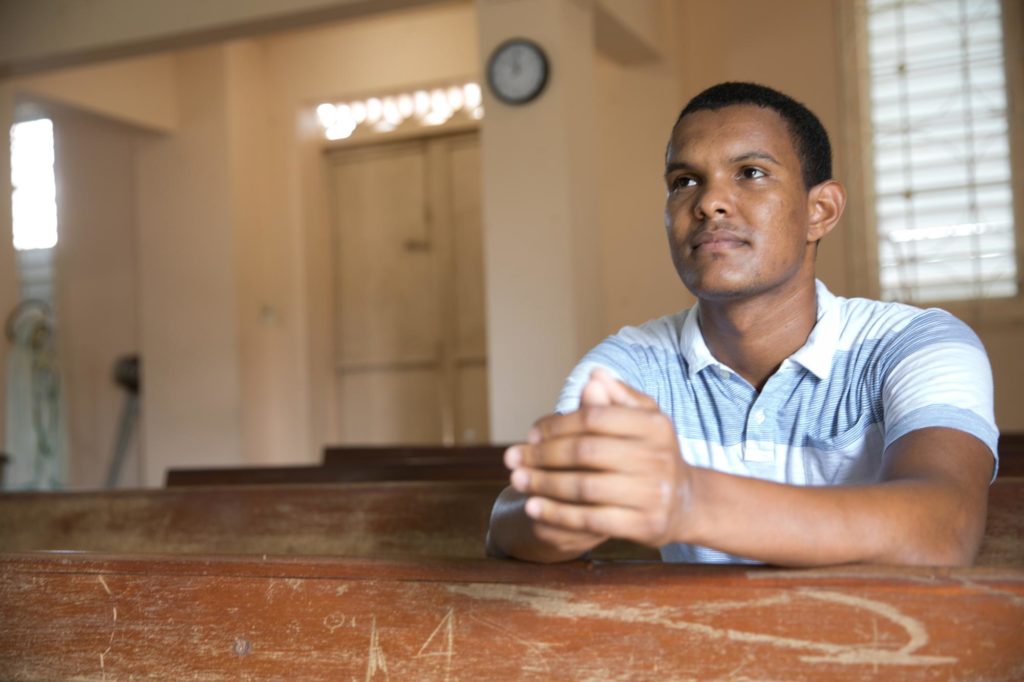
When he entered the seminary almost two years ago with the blessing of his mother, two people confessed that they knew all along that this is where he was headed: his maternal grandparents.
Tejada said,
My Christian formation came from my grandparents. They never doubted my vocation.”
The people of Our Lady of Perpetual Help also offer ongoing support for Tejada’s vocation. They interpret his entrance into the seminary as an affirmation of the entire community.
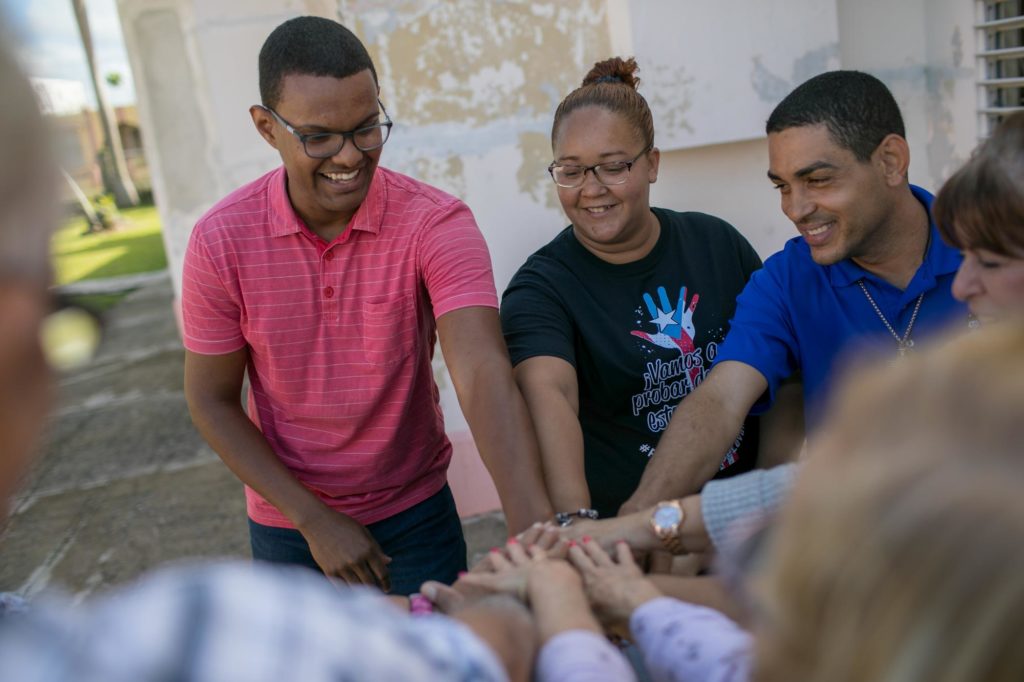
Giselle Sánchez Colón, who teaches confirmation classes, believes that Tejada is helping open up more young people’s eyes to the vocations to which God is calling them. She said, “Having a seminarian in my community is like having a little guidance from God in our path.”
Likewise, Lynette Sánchez sees Tejada’s entrance into the seminary as a significant moment for their parish.
She said,
It’s a continuation of our history as a community. We are filled with pride. We are seeing our community get closer to God.”
Tejada does not let any of this go to his head. Instead, he remains grounded in where he comes from and the type of priest he aspires to be.
He says that the spirituality of diocesan priesthood means that “a priest without his people is not a priest.”
He believes that the role of a priest is “to accompany, not to direct, because the Holy Spirit is manifested in God’s people and speaks through them as well.”
Tejada deeply admires many people in his home parish who helped give rise to his vocation.
This includes people like Mrs. Cani, a pillar of the community, who Tejada strives to emulate. She is, he said, “the person with the greatest piety and greatest love for bringing the Eucharist to the sick.”
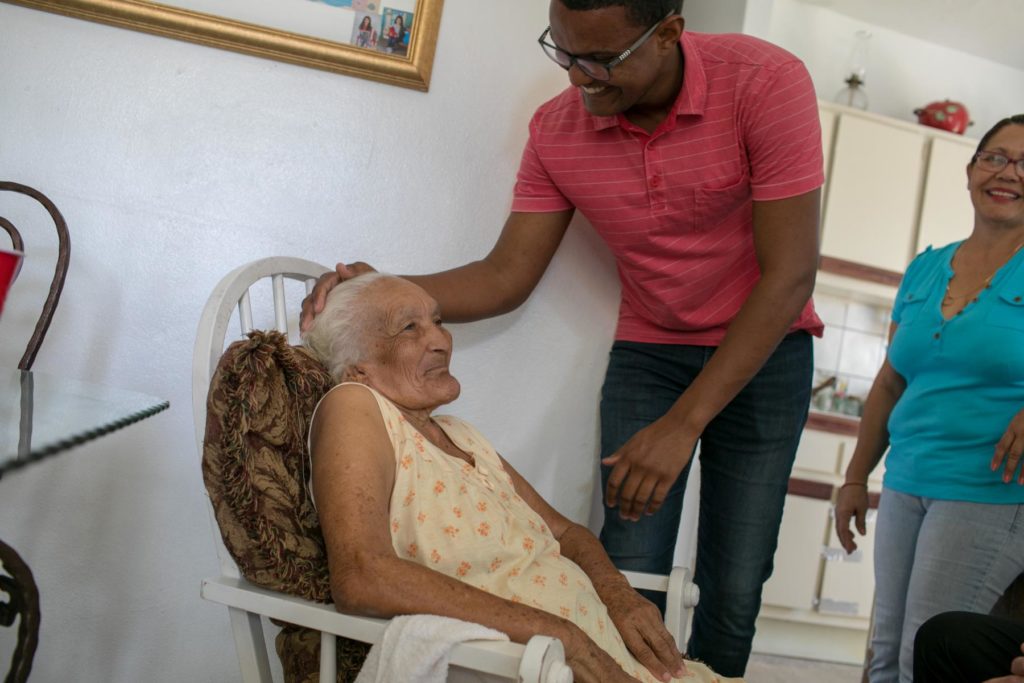
Tejada believes the poor, vulnerable and voiceless will be at the center of his priesthood.
He said,
The poor are not only Christ’s preferred ones but also the preferred of the Church, and I believe the Church must be present to their realities.”
He believes that a Catholic community grounded in the Eucharist can be an incredibly powerful force of good in our society today.
“The Gospel,” Tejada said, “has to be incarnated.”
That requires a church that is willing to get its hands dirty in the messiness of life, addressing violence in homes and on streets, embracing young people who have lost a sense of hope and supporting those who have lost their jobs.
Tejada noted, “When I speak of these realities, I speak from the realities of the small faith community from which I come.”
According to him, one of the great sins the Church can commit is to turn away from the realities of its people or to become just a “social club.”
Tejada was clearly formed by the faith community from which he comes. He will be a great blessing to the people he is one day called to serve as a priest, God willing.
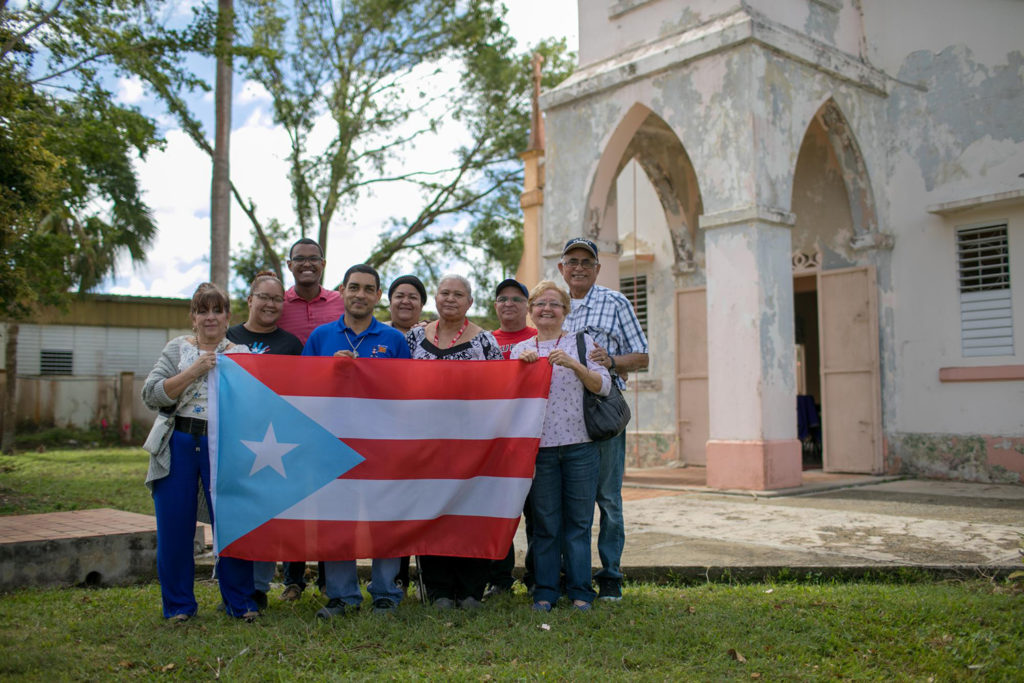
Today, as he studies at Our Lady of Divine Providence Seminary in Ponce, Puerto Rico, he is thankful for the additional community Catholic Extension Society donors that support his education. “Thank you for your generosity and goodness,” he said.
He added, “Jesus fed 5,000 people with five loaves and two fish. How many more can Jesus feed with just one vocation?”
This article appears in Extension magazine‘s spring 2022 edition. Support our mission to receive the next print edition of the magazine.


